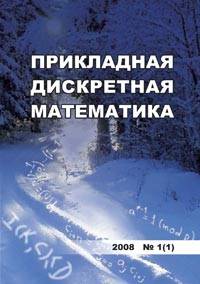The paper considers the problem of collective choice. Profile of experts' individual preferences on the set of alternatives can be given by binary relations or numerical evaluations of alternatives. Methods for constructing preferences matrices for various types of expert information are proposed, as well as methods for forming an aggregated relation that satisfies the condition of minimizing the total distance to expert preferences. Let expert preferences in the form of binary relations p1, p2,..., pm are given by the vertex adjacency matrices R1, R2,..., Rm of the corresponding digraphs. The distance between the relations is defined as the Hamming distance. We prove that the aggregate relation,which is built according to the rule of "the majority of experts", satisfies the condition of minimum distance from expert preferences. In the case, when the profile of expert preferences is given by relations of a strict order and the number of experts is odd, the aggregated relation is unique. Let the estimates of the alternatives a1, a2,..., an by the t-th expert be given in the form of a vector h* = (h-1, h2>,..., h^) with positive real components. Then the elements of the prefe- h rence matrix R* = ||rj У have the form rj = -%-r, if the values of estimates on jJ jJ h] + hj the scale are maximized. We prove that the aggregated preference relation depends on the choice of the formula for determining the distance between the preferences matrices. When you specify the distance through the module of the difference of the preference matrices elements, then the total distance is minimal if all the elements of the aggregated matrix are equal to the medians of the corresponding elements of expert matrices. When you specify the distance through the square of the elements difference, then the distance is minimal if all the elements of the aggregated matrix are equal to the arithmetic means of the corresponding elements of expert matrices. The developed technique can be used to solve multi-criteria problems in the assessment of alternatives in the scales of relations.
Download file
Counter downloads: 323
- Title Constructing an aggregated relation with a minimum distance from the expert preferences
- Headline Constructing an aggregated relation with a minimum distance from the expert preferences
- Publesher
Tomsk State University
- Issue Prikladnaya Diskretnaya Matematika - Applied Discrete Mathematics 42
- Date:
- DOI 10.17223/20710410/42/9
Keywords
групповой выбор, агрегированное отношение, профиль индивидуальных предпочтений экспертов, минимальное расстояние от предпочтений, мажоритарный граф, collective choice, aggregate relation, profile of experts' individual preferences, minimum distance from preferences, majority graphAuthors
References
Миркин Б. Г. Проблема группового выбора. М.: Наука, 1974. 256с.
Петровский А. Б. Теория принятия решений. М.: Академия, 2009. 400с.
Мулен Э. Кооперативное принятие решений: Аксиомы и модели. М.: Мир, 1991. 464 с.
Осипова В.А., Подиновский В. В., Яшина Н. П. О непротиворечивом расширении отношений предпочтения в задачах принятия решений // Журнал вычисл. матем. и матем. физики. 1984. №6. С. 831-839.
Нефедов В. Н., Осипова В. А., Смерчинская C. О., Яшина Н. П. Непротиворечивое агрегирование отношений строгого порядка // Изв. вузов. Математика. 2018. №5. С. 71-85.
Smerchinskaya S. O. and Yashina N. P. On an algorithm for pairwise comparison of alternatives in multi-criteria problems // Intern. J. Modeling, Simulation, and Scientific Computing. 2018. V.9. No. 1.
Нефедов В. Н., Осипова В. А. Курс дискретной математики. М.: Изд-во МАИ, 1992. 262 с.
http://helpiks.org/3-61482.html - Электронный учебник по теории принятия решений.
Смерчинская C. О., Яшина Н. П. Анализ компетентности экспертов в задачах группового выбора // Информационные и телекоммуникационные технологии. 2012. № 15. С. 103-115.

Constructing an aggregated relation with a minimum distance from the expert preferences | Prikladnaya Diskretnaya Matematika - Applied Discrete Mathematics. 2018. № 42. DOI: 10.17223/20710410/42/9
Download full-text version
Counter downloads: 541